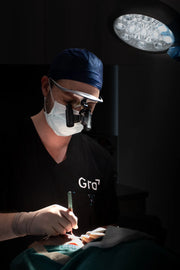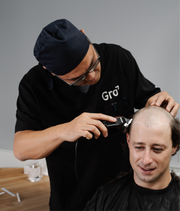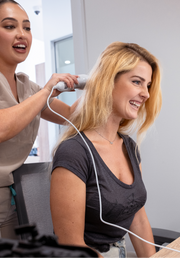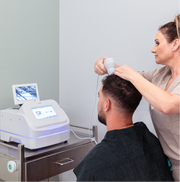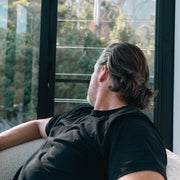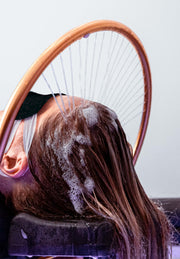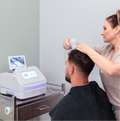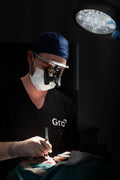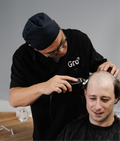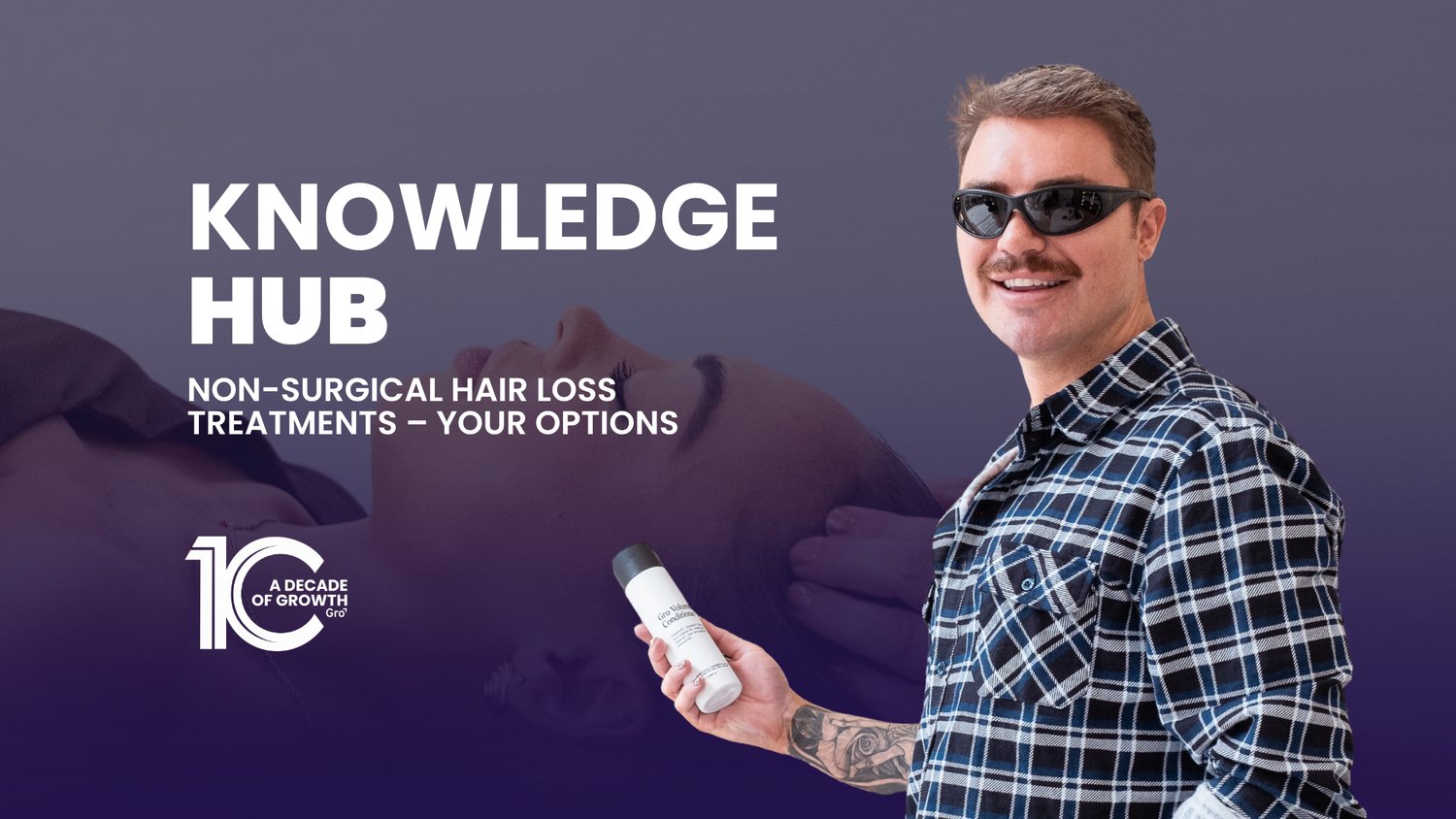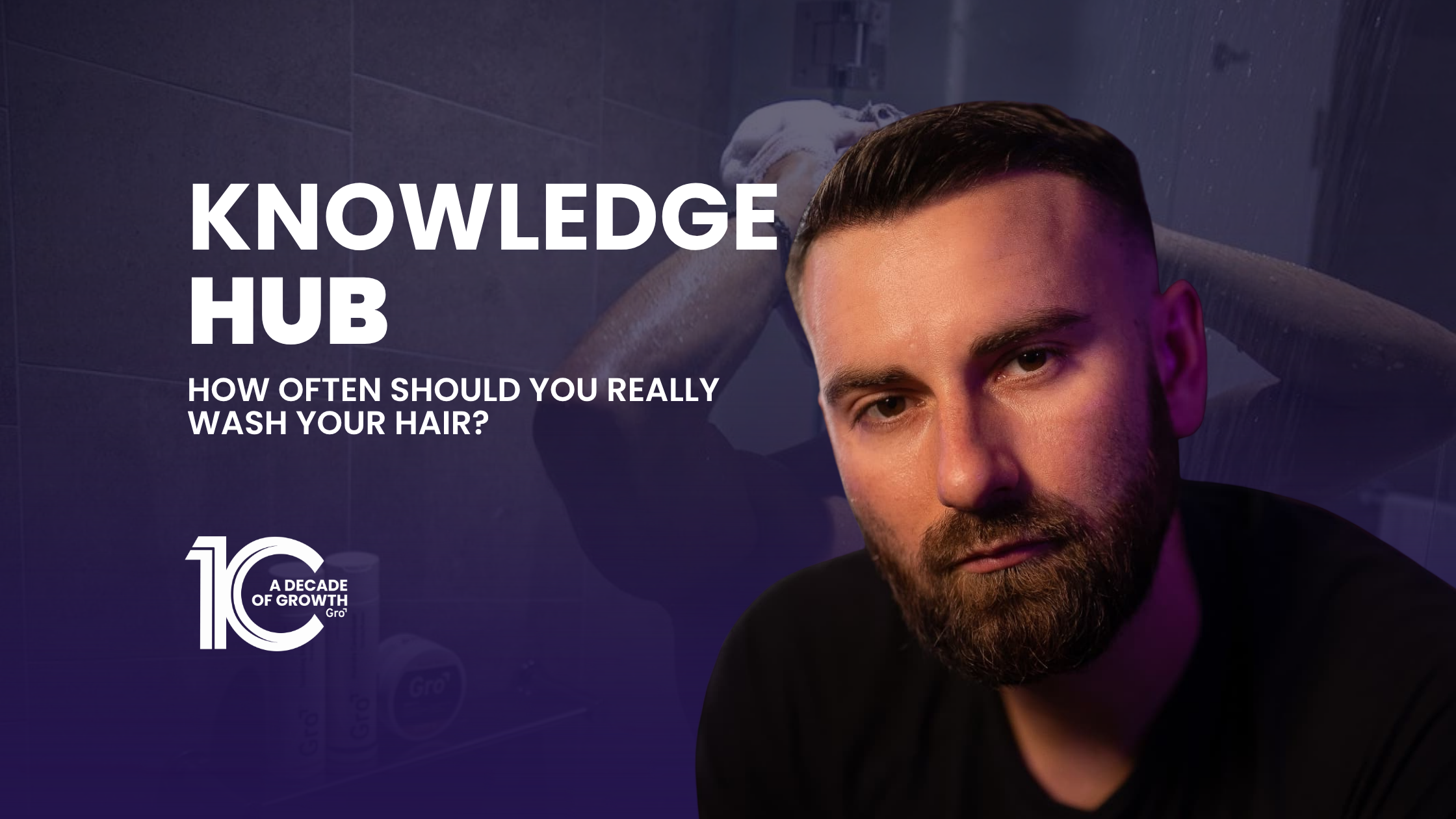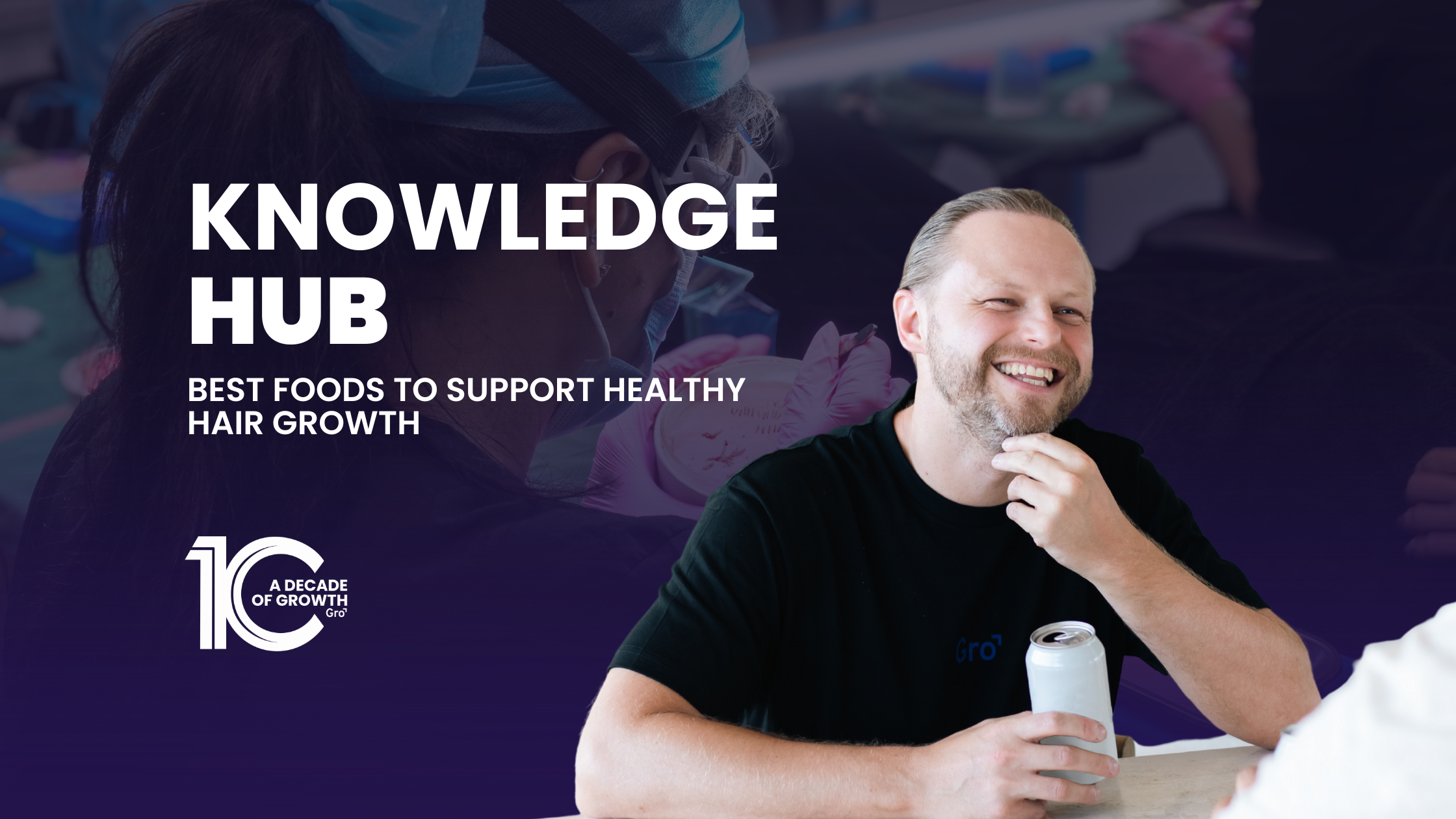If you’ve noticed hair thinning or hair loss, it can be overwhelming to figure out your next step. While hair transplant procedures may offer long-term options for some people, they’re not the only treatments available.
At Gro Clinics, we offer several non-surgical hair loss treatments designed to support scalp health, preserve existing hair, and complement broader treatment plans. These options may suit people in the early stages of thinning or those looking for alternatives to a procedure.
Non-Surgical Hair Loss Treatments Offered at Gro
-
Growth Factor Therapy
A non-surgical treatment using your own blood components, processed and applied to the scalp. Offered after clinical assessment, this option may support scalp health and hair retention in certain cases.
LEARN MORE -
Platelet Rich Fibrin (PRF)
PRF uses a concentrated formulation derived from your own blood, applied to the scalp to support hair and scalp health. It may be offered as part of a broader treatment plan, depending on clinical suitability.
LEARN MORE -
Deep Scalp Wash
A cleansing in-clinic treatment to remove build-up and support scalp hygiene. Often recommended before or after certain therapies. Availability depends on individual needs and treatment schedules.
LEARN MORE -
Low-Level Light Therapy (LLLT)
A non-invasive therapy using targeted light wavelengths to support circulation and scalp condition. Often used alongside other treatments when clinically appropriate.
LEARN MORE -
Scalp Micropigmentation (SMP)
A cosmetic treatment where pigment is deposited into the scalp to simulate hair follicles. SMP may be considered to create the appearance of increased density.
LEARN MORE -
Fotona HAIRestart
A non-invasive laser treatment applying thermal energy to the scalp. Designed to support follicle activity and may assist individuals showing early signs of thinning.
LEARN MORE -
Prescription Haircare
Prescription-only treatments may be available after consultation with a registered doctor. These options are considered on an individual basis depending on the cause and presentation of hair loss.
LEARN MORE -
Everyday Hair Care Products
Gro offers a range of non-prescription shampoos, conditioners, masks and serums that support daily scalp care. Recommended based on your goals, hair condition and hair type.
LEARN MORE
Is a Non-Surgical Option Right for You?
Non-surgical treatments can play a valuable role in supporting scalp health and maintaining existing hair. However, they are not suitable for everyone. Effectiveness depends on individual factors such as the cause and stage of hair loss, health history, and treatment goals.
Some treatments may be used on their own, while others work best as part of a broader plan that includes in-clinic therapies or prescription options.
Next Steps
If you're exploring options for your hair health, the first step is to speak with a trained professional who can discuss suitability and help guide your decision. At Gro Clinics, our team can assist with education around treatment types and support you in understanding which options may be considered based on your goals and condition.
Book a consultation or ask a question to learn more about what’s available.
Disclaimer: This content is for general informational purposes only and does not constitute medical advice. Results vary between individuals. Please consult a registered health practitioner before starting any treatment.

